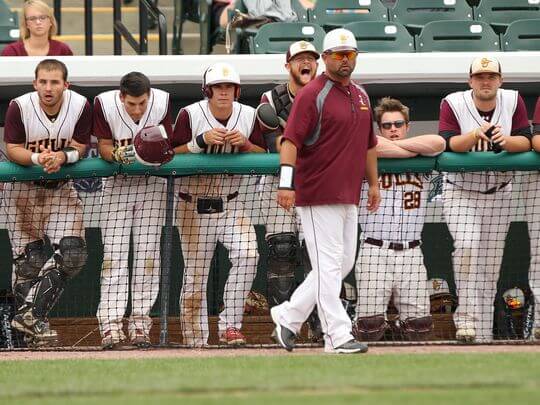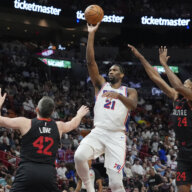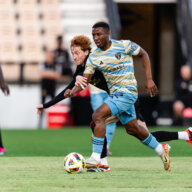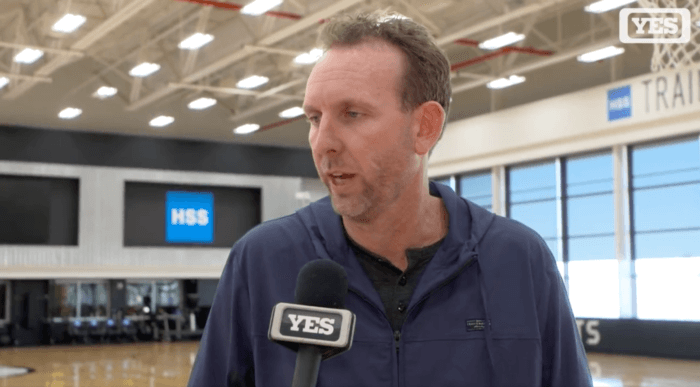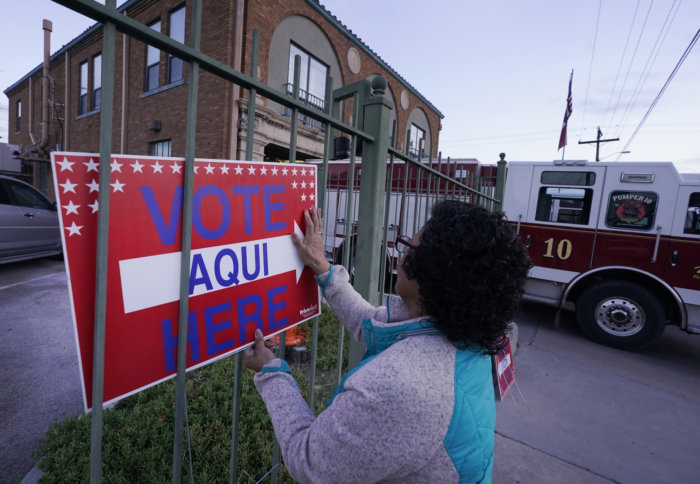There are some mysteries in the world of sports. From an athlete’s psyche, to maintaining healthy relationships while playing the sport they have fallen in love with, there is however one thing that is forgotten sometimes. Athletes are humans too, just like you and I.
Ever wonder what goes on in an athlete’s mind? Some people think about this often, especially during a live game in any sport. If a player is playing bad, or in a slump, some people would like to see teams trade that player, or demote them to the minors. In some cases it’s needed to make the player better, or to clear their heads. Sometimes athletes have a lot going on mentally, and it could be affecting their play. Whether, it’s their family, the life of being a famous athlete, or battling injury, this could really weigh down some athletes, and they may not actually be happy inside.
Money is the root of all evils. Of course, money is important in life. However, one myth that most of us live by is that money buys happiness. In many cases it really doesn’t. The more money a person makes, the more an a person spends. Take for instance tax return time. Many find themselves buying new cars, putting down payments on a house, buying a new boat, doing renovation projects, or just simply catching up on bills.
In an athlete’s world, and one that makes pretty good money, some people may take advantage of that. For instance, when an athlete goes out to lunch or dinner they’re expected to pay. Yes, in most cases it’s not a problem, but it shouldn’t come with a territory. This can weigh heavily on successful athletes. It could make them believe they’re not human, and in some cases it can mess with their psyche, while making them feel all alone.
“I agree money can’t buy happiness,” Head Coach of Salisbury Baseball Troy Brohawn stated. Coach Brohawn is a successful College Baseball Coach at Salisbury University. He played professional Baseball for the Arizona Diamondbacks, Los Angeles Dodgers, and the San Francisco Giants. Brohawn was a relief pitcher for the 2001 Diamondbacks team that won the World Series.
Coach Brohawn continues to state, “The more money you have, the more money you tend to spend. When you don’t have a lot you don’t want a big house, or a nice car. When you have it you spend it. This comes along with friends and family, that say hey can I borrow this, or borrow that. It’s kind of a double-edged sword. You work your tail off to get to that point of a nice contract, and start earning the money you dreamed about. But, it doesn’t always mean that life is always going to be peachy after that.”
Many athletes don’t make it into the professional world. As a matter of fact they just love playing the game, knowing chances are they will not make it to the professional level. There has to be life after high school or college sports for the majority of athletes. Take for instance, former Head Coach of Temple University Men’s Basketball John Chaney. Chaney would hold early morning practices so it didn’t conflict with classes, according to an article by Mike Jensen of philly.com on October 5, 2001.
“Those early-morning practices, you could not be late. Even if you had one sock on, you got on the court. One day, two guys, they were like five minutes late,” Ed Coe stated. “I think it was Dwight Forrester and Terence Stansbury, who was the star of that team. They ran the whole practice. For something like two hours, they ran. The only thing he kept saying: ‘Oh, you want to be a superstar, huh?'”
Chaney knew first hand that most athletes don’t become professionals in sports. So, his philosophy was academics, academics, academics, don’t mess with their academics. Get your degree, as there’s a life after sports. Many athletes that played for Chaney understood this. Not everyone can be a, “Shakin’ Bacon Mark Macon.” Mark Macon was a successful Temple Men’s Basketball athlete. He played a total of 8 years in the NBA, with two years of DNP (Did Not Play). The chart below from ncaa.org, shows how hard it is to make it to a professional team.
| NCAA Participants | Approximate # Draft Eligible | # Draft Picks | # NCAA Drafted | % NCAA to Major Pro | % NCAA to Total Pro | |
|---|---|---|---|---|---|---|
| Baseball | 34,980 | 7,773 | 1,215 | 735 | 9.5% | — |
| M Basketball | 18,712 | 4,158 | 60 | 50 | 1.2% | |
| W Basketball | 16,532 | 3,674 | 36 | 34 | 0.9% | |
| Football | 73,063 | 16,236 | 253 | 253 | 1.6% | |
| M Ice Hockey | 4,199 | 933 | 217 | 60 | 6.4% | — |
| M Soccer | 24,986 | 5,552 | 88 | 78 | 1.4% | — |
Download the 2018 Probablility of Competing Beyond High School Figures and Methodology
Coach Brohawn elaborates on the success of an athlete, “Did I love success when I had success? Yes, but success in the game of Baseball doesn’t happen all the time. You know there’s a lot of failure.” He then dives into his playing days, “My job was to come in, and face the best lefty in the lineup, in the 7th, 8th, or 9th inning. I did my job or I didn’t do my job. For me I used to be a starter. I had three or four days to flush the start before I had to get on the bump again. But, when I became a reliever I had to really learn how to have a quick memory loss. I really had to mentally adjust to that situation. I may have success one night, but Friday night not so much.”
Mental health has become an area of concern after many, many, many years in the United States. It’s finally becoming more noticeable in society now. Can we all do better when noticing different types of behavior of a person? Absolutely. Are we better at caring for a person? Absolutely. Well, athletes have feelings too. It can be stressful at times for a successful athlete. One misconception with society is a phrase that most have heard before, “Professional athletes make tons of money, they’re okay.” Well, financially maybe so. However, one area of concern that some people tend to forget is that these gladiators are not alien to battling mental health. It’s difficult at times to balance the stressors of life, while remaining successful, healthy, and mentally competent.
“So for 29 years, I thought about mental health as someone else’s problem.” Cleveland Cavaliers player Kevin Love stated in an article he wrote, that was published on March 6, 2018. “Sure, I knew on some level that some people benefited from asking for help or opening up. I just never thought it was for me. To me, it was form of weakness that could derail my success in sports or make me seem weird or different. Then came the panic attack. It happened during a game.”
Kevin Love elaborated on his issue, and he found that the the underlying problem was based off his Grandma Carol, “When I made the NBA, she was getting older, and I didn’t see her as often as I used to. During my sixth year with the T-Wolves, Grandma Carol made plans to visit me in Minnesota for Thanksgiving. Then right before the trip, she was hospitalized for an issue with her arteries. She had to cancel her trip. Then her condition got worse quickly, and she fell into a coma. A few days later, she was gone. I was devastated for a long time. But I hadn’t really ever talked about it. Telling a stranger about my grandma made me see how much pain it was still causing me. Digging into it, I realized that what hurt most was not being able to say a proper goodbye. I’d never had a chance to really grieve, and I felt terrible that I hadn’t been in better touch with her in her last years. But I had buried those emotions since her passing and said to myself, I have to focus on basketball. I’ll deal with it later. Be a man. The reason I’m telling you about my grandma isn’t really even about her. I still miss her a ton and I’m probably still grieving in a way, but I wanted to share that story because of how eye-opening it was to talk about it. In the short time I’ve been meeting with the therapist, I’ve seen the power of saying things out loud in a setting like that.”
Some athletes struggle to maintain healthy relationships outside the world of sports. They often work vigorous hours in the off-season, as well. Now successful athletes that are fortunate to make the professional level, understand the work behind their success. However, most athletes don’t make the professional level. Some and even successful athletes may feel alone or empty when trying to think of things to do when they may have some free time. Segregation is never easy, but this happens to athletes from time to time. To some people they may state, “It’s the nature of the business.” Well, yes and no when referring back to the chart. Most of these young men and women aren’t realistically expected to make the professional level. So, when they do they’re on cloud nine at first. Some may not know how to handle the pressure of being a professional athlete, and all that entails. Their young lives dramatically change forever. For instance, they can no longer go to restaurant without being noticed by someone, and yes, “It’s the nature of the business.”
There are some experts that may not have the answers for an athletes stress, as sometimes there are no real answers. Some factors of stress include chemical imbalances, not playing well (To include injuries), finding the balance of work and family. Family is important, and this is one main key to helping an athlete cope. Friends will come and go, but most family members will not.
“Nothing comes above my family. I don’t care what game it is,” Coach Brohawn states. “Never. When something is going on, that’s the priority in my life.”
Coach Brohawn continues, “I preach mental toughness over any type of skill we do. It’s easy to recruit talent. It’s easy to recruit kids that want to win. It’s harder to recruit kids that have faced adversity, and some that have failed because you don’t know what they’re going to be like when they face that adversity. Are they going to hit it head forward? Or are they going to hide in a cave? You can be the most talented kid in the world, but if you can’t handle failure, then it’s going to be tough.”
The purpose of this article is to bring an understanding that athletes are humans just like you and I. I’m not here to preach or rally the troops by no means. By no means am I saying that fans shouldn’t have their opinions on players. I’m giving the other side because it can be mentally tough being a successful athlete. People can only imagine how hard it is to remain mentally competent, and be a successful athlete at the same time. Hopefully, we as people can remember athletes put their pants on one leg at a time, and have feelings too.
Photo: David Sinclair Image/Daily Times file

